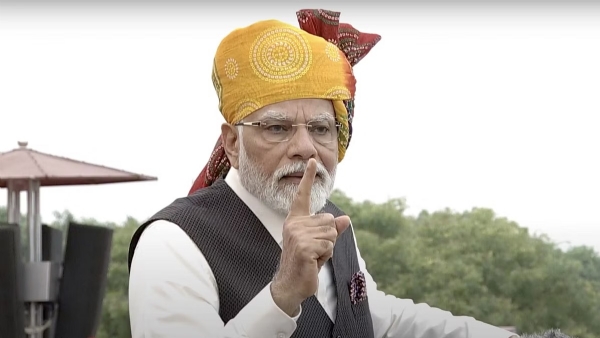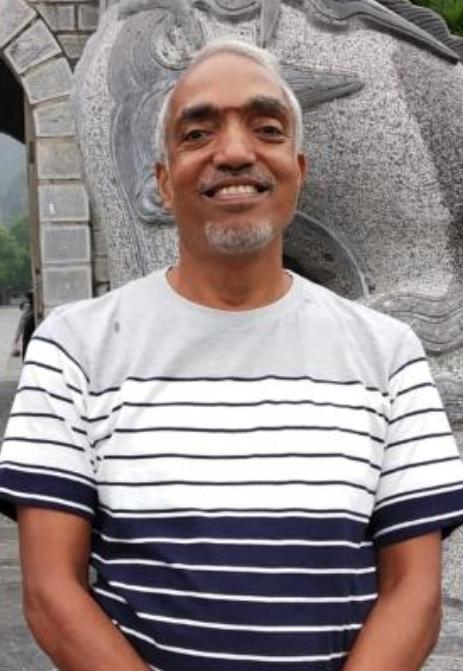Unleash India spirit!
Presenting a case for ‘developed India’ by 2047, the year country celebrates her centennial post-independence from imperialistic British forces, Modi did not mince words. In the process, he has served an early notice to four large global economies that also consider themselves as invincible.
Total Views |
Changing geo-political equations & global order has etched a key role for India as Vishwa Guru & Mitra, the most dependable ally
Prime Minister Narendra Modi put up a comprehensive socio- economic development plan before 1.4 billion Indians while delivering his tenth address from ramparts of iconic Red Fort.
Given the grand plan that encapsulates his over 90-minutes address on Tuesday, political interpretations are bound to be made given that elections to four state legislatures followed by Lok Sabha polls were scheduled before June 2024.

While the messenger in Modi arguably did a fantastic job of presenting broad contours of 25- year work plan, the leader in him hit the right note on three evils that the country faced.
Presenting a case for ‘developed India’ by 2047, the year country celebrates her centennial post-independence from imperialistic British forces, Modi did not mince words. In the process, he has served an early notice to four large global economies that also consider themselves as invincible.
A vision document being readied by ruling BJP and the central government would roll out specifics in this plan. This document has been in the works last one year when 75-years commemoration campaign was kicked off by Modi. Given that 2023 is first of 25-years ‘amrit kaal’, emphasis on grand ‘long viewfinder’ works well and timely.
The resolve to build on substantive achievements last ten years got reflected amply on socio-economic front to upend India to third position as largest growing economy with a wide diverse market for goods and services.
Fight against corruption, dynastic politics and appeasement line he pushed very hard is in continuation of BJP and NDA closing ranks to not cede even an inch of political space for 26-parties opposition.
These three evils found mention prominently even in his reply to a no-confidence motion that was moved by some opposition parties earlier this month. Targeting a few families that run their political parties as personal fiefdoms or family enterprises, Prime Minister seems to have taken the fight across fence.
Guarantees on political stability would be a big factor given resounding victory that Modi got in 2014 and 2019 Lok Sabha. And, continuation of the ten-year work done is one clinching issue politically as well as on economic front. Political instability is one big risk that goes against the very grain of investments, buoyancy in markets and economic expansion. From the opposition perspective, political stability is one thing that cannot be taken for granted given inherent contradictions within fragile political formations that form part of anti-Modi rainbow network
Recent successes for Congress in Karnataka and Aam Aadmi Party winning big in Punjab may have enthused opposition ranks leading to Patna and Bengaluru conclaves. But the socio-economic model of ‘freebies in Punjab and guarantees in Karnataka’ are unsustainable.
Already, Karnataka has made more than clear that it would hardly be able to mobilize funds for even taking forward development projects erstwhile BJP government has begun. Internecine power struggle within the Congress and inter-party rivalry with the 26-party conglomeration is bound to take investors dizzy.
Yet another commitment made by Narendra Modi was to guarantee against corruption that’s eating into vitals of the Indian polity. By and large, the ten year Modi rule at centre was corruption free notwithstanding charges of ‘suit boot sarkar’ made by Congress to pull down the BJP and tarnish with its own black brush. In states, public sector companies, banks and award of contracts, most players across spectrum have still been susceptible and amenable to personal gratification. Through the guarantee, Modi may have to extend his fight against corruption to states and then down below as districts administration continue to be marred by shady deals that need closer scrutiny.
Trust in his leadership and BJP-led NDA model of governance is something that he has earned in last ten years. This trust needs to get extended downwards under his close watch to ensure that Hindu- centric voters will continue to be with Modi-led alliance. Mistrust with Congress regimes was what made ten years rule of Manmohan Singh unsustainable. Trust factor with the voters, partners, investors and all stakeholders in the next government may have to be worked on faster by Modi’s strategists.
Narendra Modi seems to have banked heavily on spirit of India that has stood test of times. When he invoked ‘unstoppable’, tireless and does not give up’ spirit of hoi polloi, he made an instant ‘emotive connect’ with those tired of being ‘held up or pulled back’ in realizing their aspirations.
BJP, NDA and Modi’s commitment to the concept of ‘vishwa guru’ or attaining numero uno status for India globally is fairly well established. Extending this further, Prime Minister Modi portrayed India as a ‘vishwa mitra’, a bankable friend, dependable partner and stakeholder in human development.
His talk of a new ‘global order’ and ‘geo-political’ alignments is rather real given sea changes experienced in aftermath of cold war. Post-Covid 19, the much anticipated re-working of global order is expected to roll out in near future. And, this provides perfect opportunity for India to play a key responsible role internationally
moving away from reticence of the past by ‘minding its own business’.
This futuristic articulation to position India on global matrix both on geo-political issues and socio-economic plane would go well.


